José Afonso, also known as Zeca (1929-1987) has been a great Portuguese singer and composer, an icon of the fight for democracy of his country against fascist dictatorship of Salazar and then Caetano, who oppressed Portuguese people from 1926 to 1974. The "Carnation Revolution" made by the Armed Forces Movement (Movimento das Forças Armadas, MFA), which restored democracy in Portugal, began April 25th, 1974 with a song by Zeca, «Grândola, Vila Morena» (listen), broadcast by Portuguese radio as a starting signal of the popular uprising against the dictatorship.






 .
.
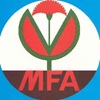
Biography (translated and adapted
from: http://www.aja.pt/)
José Manuel Cerqueira Afonso dos Santos was born on August
2nd, 1929 to the elementary school teacher
Maria das Dores Dantas Cerqueira and to the judge José
Nepomuceno Afonso, both having decidedly reactionary ideas. José
was born in Aveiro, a town south of Porto,
which at the time had just over 30 thousand inhabitants, while
today it has over 80 thousand.
José's birthplace was probably in the Fonte
das Cinco Bicas area, a few hundred meters from the Cathedral,
where his family owned other
properties (AJA).
In 1930 José's parents moved to Angola, a Portuguese colony
in Africa, due to a job posting, leaving him, for his ill health,
in Aveiro with his aunt Gegé and his uncle Xico, an anti-clerical
Republican opponent of the authoritarian President Sidónio
Pais. In 1933, under pressure of his mother, José joined
with his parents in Angola, where he started elementary school.
After returning in Aveiro in 1936, the following year he reached
again his family, his parents and his brothers João and
Mariazinha, in Mozambique, another Portuguese colony in Africa.
In 1938 he came back to Portugal, by his uncle Filomeno, the reactionary
mayor of Belmonte, follower of Salazar, which led him to enroll
at Mocidade Portuguesa, the youth organization of the regime.
José described the years he lived in Belmonte as a horrible
time, spent in isolation from the other children.
In 1940 he moved to Coimbra, where he
graduated from high school Dom João III (currently Escola Secundária José
Falcão). In the meanwhile his family moved to East
Timor, a Portuguese colony in Indonesia, which were occupied by
the Japanese during the Second World War: José didn't have
news of his family until the end of the war, in 1945. Again in
1940 Zeca began to sing serenades of Coimbra, which avoided him
to be abused by the bullying students of the city.
In 1948 he completed his high school course, and met Maria Amália
de Oliveira, a seamstress of humble origins, which he married
in secret, due the opposition of his parents. In 1949 he enrolled
in the University of Coimbra,
in the Faculty of Literature,
in the course of Historical and Philosophical Sciences. He went
back in Angola and Mozambique with a Orfeão, a university
recreational choral society.
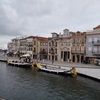
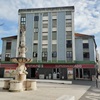
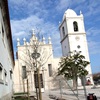
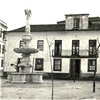
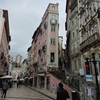

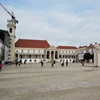
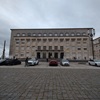
In January 1953 his elder
son, José Manuel, was born and the following year his daughter
Helena came into the world. Zeca's first records were published,
two 78rpm of Fados of Coimbra, edited by Alvorada, of which no
residual copies are today known. From 1953 to 1955 José
performed the required military service: he was assigned to Macau, a former Portoguese colony in China,
but for health reasons he stayed in Portugal. Zeca underwent serious
financial straits to sustain his family and for this reason in
1958 he sent his two children to their grandparents, in Mozambique.
He experienced a serious marital distress, which ended in divorce
in 1963.
In 1963 he graduated with a thesis on Jean-Paul Sartre titled
"Substantialist Implications in Sartrean Philosophy"
and worked as a teacher in Lagos, Faro, Mangualde, Aljustrel and
Alcobaça.
Zeca joined the band "Conjunto Ligeiro" as a
singer; a former stage mate told: "We were performing
dressed with long satin jackets, each of a different color, imitating
"mambos" orchestra of Perez
Prado, the maximum in that period." In 1957 he performed
at "Champs Elysées"
theater in Paris.
Zeca travelled again to Angola and then he played, pressed or
recorded for the television in France (Paris), Switzerland (Geneva),
Germany, Sweden.
José lived in Faro with some colleagues, including Zélia,
who later became his second wife.
In May 17th, 1964 Zeca held a concert
at the Sociedade Musical Fraternidade Operária
Grandolense (Workers' Brotherhood Musical Society of Grandola),
whence he was inspired to compose «Grândola, Vila
Morena».
From 1964 to 1967 he lived with Zélia in Lourenço
Marques (now Maputo, capital of Mozambique), where he met again
his two children. In Mozambique José lived and taught in
Beira, where he set to music Bertolt Brecht's
work "The exception and the rule". In Mozambique
in 1965 his daughter Joana was born.
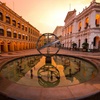


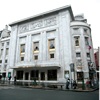

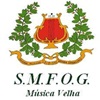

In 1967 he was back in
Lisbon, exhausted by colonial system; leaving the eldest son José
Manuel in Mozambique with his grandparents. Then he was appointed
professor in Setúbal, then suffered from serious health
problems, for which he was admitted to hospital for 20 days and
later he was expelled from teaching.
In 1969 he lived in Coimbra, where he took actively part in the
student movement and in that who tried to reorganize union activity,
following Marcelista Spring, a brief opening period of the dictatorship
after the rise to power of Marcelo Caetano, replacing Salazar.
In 1969 his fourth and last child, Pedro was born. He took part
in Festival Internacional de Música Popular in Cuba.
In 1973 many of his concerts were banned by the political police
PIDE/DGS and in April he was arrested and detained for 20 days
in the political prison of Caxias, where
he wrote the poem «Era Um Redondo Vocábulo».
At Christmas of 1973 he released LP "Venham
Mais Cinco", recorded in Paris, with the participation,
in the title track, of the singer Janine
de Waleyne.
On March 29th 1974, Coliseu
dos Recreios theater in Lisbon was crowded of people who came
to hear various artists, including Zeca, which ended his concert
with "Grândola, Vila Morena". MFA members
in the audience choose that song as a signal for the revolution,
which started less than a month later. The same day of the concert,
the censorship warned the organizers that some songs were forbidden,
but unexpectedly "Grândola" was authorized , as
well as the Brechtian songs composed in Mozambique.
José personally engaged himself in revolutionary movements,
and in particular in LUAR. In Italy the extreme-left politics
Lotta Continua, Il Manifesto
and Avanguardia Operaia released the album "República",
recorded in Rome between 30th September and 1st
October 1975 together with Italian musicians in Santini Editions
studios. The incomes of the record, never sold in Portugal, were
intended to support the Commission of the Workers of the newspaper
República.
In 1976 Zeca supported the candidacy for president of Otelo
Saraiva de Carvalho, the brain of Carnation
Revolution.








Zeca performed in Brussels
at Counter-Eurovision Festival, in Paris at Théatre
de la Ville, in Bruges at Festival de Printemps and on January
29th, 1983 in Coliseu
dos Recreios theatre of Lisbon again, where he started to
show the first annoyance for his disease, diagnosed in 1982.
After his ban from school, in force since 1968, Zeca was reinstated
to teaching, with the chair of History and Portuguese at the Escola
Preparatória of Azeitão, near Setúbal.
José didn't like honors: he rejected Ordem da Liberdade,
a decoration awarded by the President of the Republic, and after
his death his widow Zélia refused the posthumous award
of the same decoration; he instead accepted the gold medal of
the city of Coimbra, even though he specified he didn't want to
become an institution.
Death
José Afonso died of Amyotrophic lateral sclerosis at 3:00
AM of February 23rd, 1987 at Setúbal hospital.
The next day, thirty thousand people followed his funeral. The
funeral procession took two hours to walk through the 1,300 meters
from S. Julião Secondary
School (currently Sebastião da Gama) to Senhora
da Piedade cemetery, in
Setúbal, where he was buried.
His coffin, covered with a red flag with no symbol, as demanded
by José, was carried by his closest
friends. A footage of his funeral can be seen on YouTube,
by the Júlio Pires Library of Mação (Santarém).
On November 18th, 1987 José
Afonso Association was created with the aim of helping to
achieve the artistic ideas of Zeca.










Memory
José Afonso is not commemorated with great emphasis in
his native town, perhaps due to the prevailing conservative orientation
of its inhabitants, indeed after the Carnation Revolution only
on a few occasions have the elections been won by the left. A
street in a semi-peripheral
area has been dedicated to Zeca, a plaque
in the Parque da Baixa de Santo António,
and a wall painting on the facade
of the train station are also an Aveiro's tribute to Zeca,.
In Coimbra, on the other hand, a plaque
was placed on the facade of the house
in which Zeca had lived, in the Old
Cathedral square, on April 25th, 1987, to commemorate the anniversary
of the Carnation Revolution and two months after his death.
In Lisbon, the Museu do Aljube Resistência e Liberdade (link), installed in the
building that from 1928 to 1965 housed the political prisons of
the fascist dictatorship, features on one of its walls the first verse of «Grândola,
Vila Morena», while the French large-scale retail chain
FNAC displays outside its store in the shopping centre Armazéns
do Chiado, in the centre of the capital, a poster
with the image of Zeca and a verse of the same song.
Also in Lisbon a street has been dedicated to José Afonso,
a side street of the Estrada da Luz, as in four localities of
the Lisbon Metropolitan Area: Loures, Santo António dos
Cavaleiros (Loures), Agualva-Cacém (Sintra) and Ramada
(Odivelas).
In 2020 Stefania Secci Rosa
with the voices of Francesca Corrias, Balentes (Stefania Liori,
Federica Putzolu, Pamela Lorico), Lulli Lostia, Alice Marras and
Claudia Aru performed Grândola
Bidda Morisca, a Sardinian-language version of Grândola
Vila Morena, a tribute to Zeca, Portugal and April 25, the date
of the liberation of Portugal and Italy.

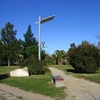
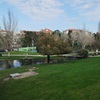
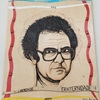
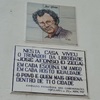

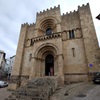
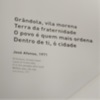
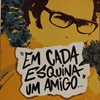

Discography (from: Desta canção que apeteço. Associação José Afonso, Câmara Municipal de Grândola, 2011)




















1. Fados de Coimbra (1953) Single/78 rpm
Melodia;
2. Fados de Coimbra (1953) Single/78 rpm
Melodia;
3. Balada
do Outono (1960), EP/45
rpm, Rapsódia;
4. Coimbra
(1962) EP/45 rpm,
Alvorada;
5. Coimbra
Orfeon of Portugal (1962) LP/33
rpm, Monitor, USA;
6. Baladas de Coimbra (1962) EP/45 rpm, Rapsódia;
7. Baladas de Coimbra (1963) EP/45 rpm, Rapsódia;
8. Baladas de Coimbra (1963) EP/45 rpm, Rapsódia;
9. Cantares de José Afonso (1964) EP/45 rpm,
Columbia (2 editions,
the first censored);
10. Baladas e Canções (1964)
LP/33 rpm Ofir (2
edizioni) (*) (in
CD (1996) EMI); IMAGE
11. Baladas
e Canções (1967) EP/45
rpm Ofir; (*)
12. Baladas
e Canções (1967) EP/45
rpm Ofir; (*)
13. Baladas
(1967) EP/45 rpm Ofir;
(*)
14.
Cantares do Andarilho (1968) LP/33
rpm Orfeu (2 editions);
IMAGE
15. Menina
dos Olhos Tristes (1969) Single/45
rpm Orfeu;
16. Contos Velhos Rumos Novos (1969) LP/33 rpm Orfeu
(2 editions); IMAGE
17. Traz Outro Amigo Também (1970) Orfeu;
IMAGE
18. Natal dos simples (1970) EP/45 rpm
Orfeu; (*)
19. Resineiro engraçado (1970) EP/45 rpm
Orfeu; (*)
20. Chamaram-me cigano (1970) EP/45 rpm
Orfeu; (*)
21. Menina
dos Olhos Tristes (1971) Single/45
rpm Orfeu; (*)
22. S.
Macaio (1971) EP/45
rpm Orfeu; (*)
23. No
Vale de Fuenteovejuna (1971) EP/45
rpm Orfeu; (*)
24. Cantigas do Maio (1971) LP/33 rpm Orfeu; IMAGE
25. Canto
moço (1971) EP/45
rpm Orfeu; (*)
26. Os
eunucos (1972) EP/45
rpm Orfeu; (*)
27. Eu Vou Ser Como a Toupeira (1972) LP/33 rpm
Orfeu; IMAGE
28. Venham Mais Cinco (1973) LP/33 rpm Orfeu;
IMAGE
29. Grândola, Vila Morena (1973)
EP/45 rpm Orfeu; (*)
30. Cantigas do Maio (1973) EP/45 rpm Orfeu;
(*)
31. Maio, maduro Maio (1973) EP/45 rpm Orfeu;
(*)
32. Coro da Primavera (1974) EP/45 rpm Orfeu;
(*)
33. A morte saiu à rua (1974) EP/45 rpm Orfeu;
(*)
34. Ó Vila de Olhão (1974) single/45 rpm Orfeu; (*)
35. Coro dos Caídos (1974) single/45 rpm Orfeu; (*)
36. Coro dos Tribunais (1974) LP/33 rpm Orfeu;
IMAGE
37. O que faz falta (1975) single/45 rpm Orfeu;
(*)
38. Viva o Poder Popular/Foi na Cidade do Sado
(1975) single/45 rpm LUAR IMAGE
39. República (1976) LP/33 rpm Lotta
Continua/Il Manifesto/Avanguardia Operaia; IMAGE
40. Com as Minhas Tamanquinhas (1976) LP/33 rpm Orfeu;
IMAGE
41. Os Índios da Meia Praia (1977) single/45 rpm Orfeu; (*)
42. Enquanto Há Força (1978)
LP/33 rpm Orfeu; IMAGE
43. Grândola, Vila Morena (1979)
EP/45 rpm Orfeu; (*)
44. Fura Fura (1979) LP/33 rpm Orfeu;
IMAGE
45. Fados de Coimbra e Outras Canções
(1981) LP/33 rpm Orfeu; IMAGE
46. José Afonso in Hamburg (1981) LP/33 rpm Verlag
Arbeiterskampf;
47. Ao vivo no Coliseu (1983) LP/33 rpm Orfeu;
IMAGE
48. Zeca em Coimbra (1983) MaxiSingle/45 rpm Foto
Sonoro (published
against the author's will)
49. Como se fora seu filho (1983) LP/33 rpm Sassetti;
IMAGE
50. Galinhas do Mato (1985) LP/33 rpm Transmédia;
IMAGE;
(*)
work including songs already published in previous records
Collection
1. Baladas e Fados de Coimbra (1982) LP/33 rpm Edisco;
2. José
Afonso (1983) LP/33
rpm Orfeu;
3. José
Afonso agora e sempre (1987) 3 LP/33
rpm Transmédia;
Bibliography
Cantares de José
Afonso. Nova Realidade.
Cantar de Novo. (1971) Nova Realidade.
José Afonso. (1972) Paisagem
 page
created:
February
15th 2015 and last updated: December 13th, 2024
page
created:
February
15th 2015 and last updated: December 13th, 2024